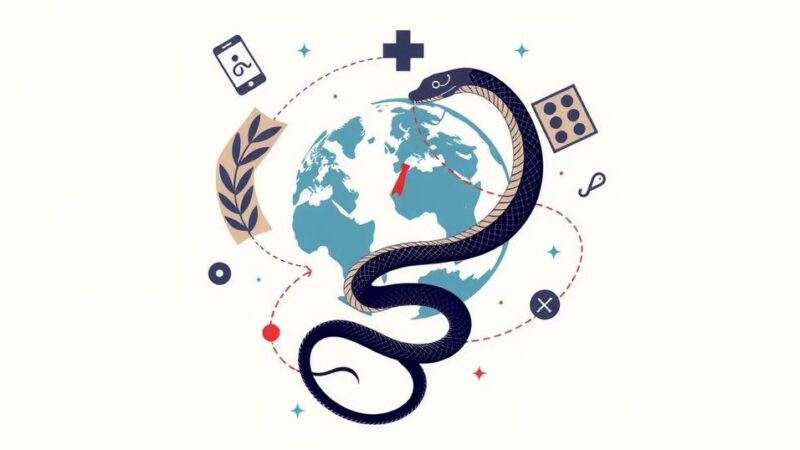Rachel Nuwer’s investigation into the recent emergence of an uncontacted tribe in the Amazon underscores the tragic reality that such ‘first contacts’ often lead to dire consequences, primarily due to violence and disease. The contact was driven by fear of external threats, as historical trauma has fostered a deep mistrust of outsiders among isolated tribes. Following the contact, worries persist regarding the spread of diseases, emphasizing the urgent need for more effective protective measures for these vulnerable communities.
The emergence of members from an uncontacted tribe in the Amazon highlights the precarious reality facing such isolated groups. Rachel Nuwer explores the implications of this contact, revealing that ‘first contacts’ frequently lead to tragic consequences, such as increased mortality from disease and violence. The Brazilian governmental agency Funai recently reported the peaceful contact of seven individuals from a previously isolated tribe, a significant event as it was the first recorded contact since 1996. Locals had observed these individuals raiding crops out of desperation due to violent encounters with outsiders, often associated with illegal loggers and drug traffickers who pose a grave threat to their existence. Contrary to popular belief, isolated tribes are cognizant of the outside world and often act out of fear rather than a wish for material possessions. Historical accounts indicate that many of these tribes have been victimized by external forces, fostering a deep-seated distrust towards outsiders. The narrative suggests that their reluctance to establish contact stems from traumatic historical experiences during which they witnessed their kin murdered and their lands invaded. Even today, isolated peoples often do not have immunity to infectious diseases, which can decimate their populations upon contact with outsiders. The article emphasizes the dire consequences following the recent contact. Just weeks after the initial interaction, several tribe members contracted influenza. There are profound fears that they may transmit this virus back to their home, potentially endangering their entire community. Despite some anthropological experts advocating for a cautious approach to contact—suggesting the establishment of clear protocols to protect and monitor these vulnerable populations—a significant lack of institutional knowledge and a failure to communicate effectively between governments remains alarming. The article concludes by underscoring the need for both Brazil and Peru to adopt more transparent and proactive measures to safeguard the future of these isolated tribes. The ongoing threats from mining, logging, and narcotrafficking indicate that areas deemed remote are not insulated from external influences. If uncontacted groups are to survive, there must be a concerted effort to balance their autonomy with the inevitable encroachments of modern society.
The article delves into the delicate situation regarding uncontacted tribes, particularly in the Amazon region. It notes that the notion of these tribes living in complete isolation is misleading, as they have historically interacted with the outside world, often in disastrous ways. The recent reported contact with members of an isolated tribe raises critical questions about the future of such groups amidst external threats, including disease and violence. The Brazilian governmental agency Funai’s interactions with these tribes bring to light the complex dynamics of survival, cultural preservation, and the ethical dilemmas involved in contacting indigenous peoples who have chosen to remain disconnected from mainstream society.
In sum, the pressing issues surrounding uncontacted tribes highlight the urgent need for a reassessment of how contact is made with these vulnerable communities. The systemic neglect and the harsh realities of encroachment by outsiders pose significant risks to their survival. Proactive measures, enhanced transparency regarding their protection, and a robust strategy for potential engagement with these tribes are paramount in ensuring their continued existence in the face of modern threats.
Original Source: www.bbc.com






